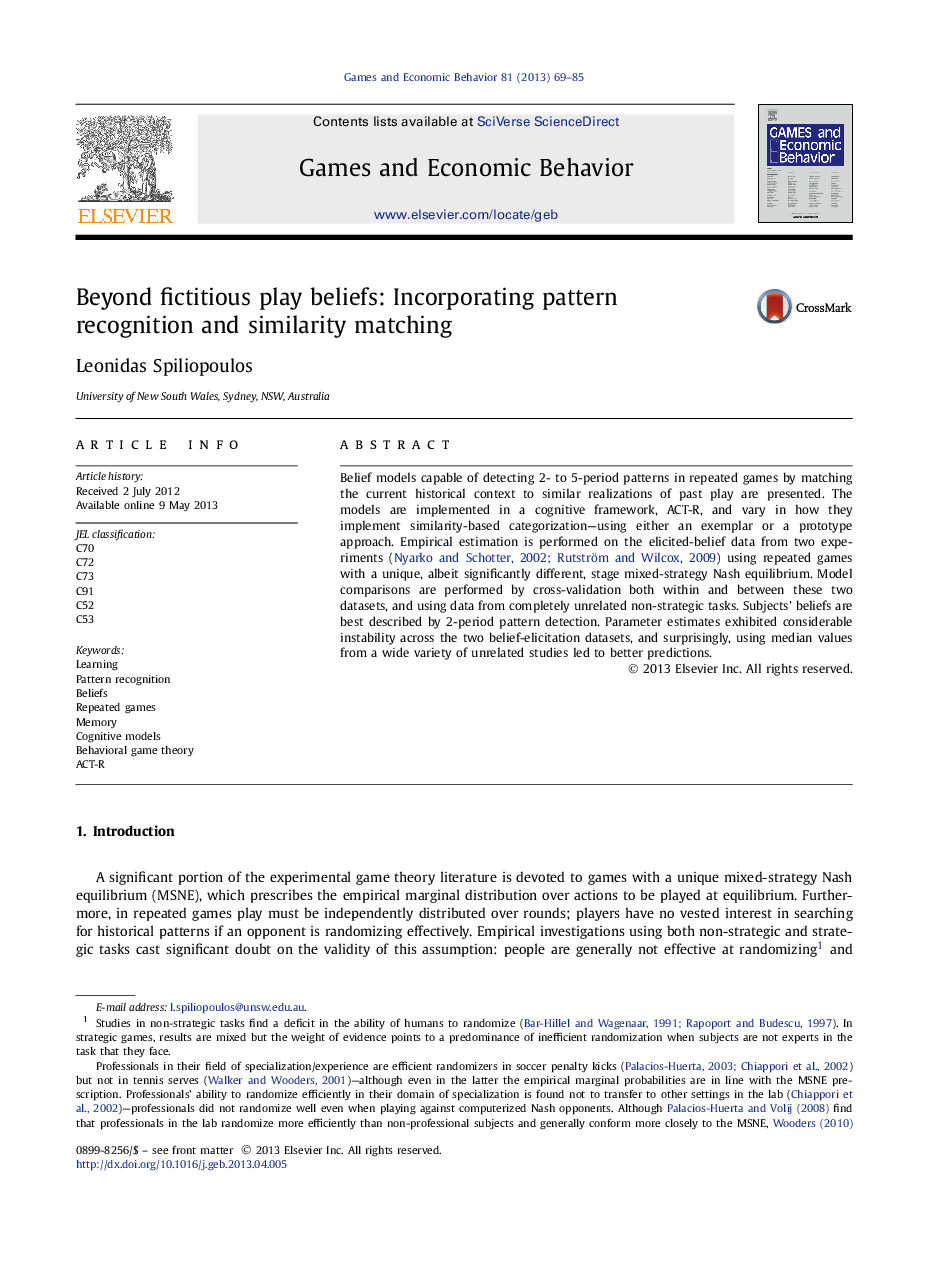| Article ID | Journal | Published Year | Pages | File Type |
|---|---|---|---|---|
| 5071938 | Games and Economic Behavior | 2013 | 17 Pages |
Abstract
Belief models capable of detecting 2- to 5-period patterns in repeated games by matching the current historical context to similar realizations of past play are presented. The models are implemented in a cognitive framework, ACT-R, and vary in how they implement similarity-based categorization-using either an exemplar or a prototype approach. Empirical estimation is performed on the elicited-belief data from two experiments (Nyarko and Schotter, 2002; Rutström and Wilcox, 2009) using repeated games with a unique, albeit significantly different, stage mixed-strategy Nash equilibrium. Model comparisons are performed by cross-validation both within and between these two datasets, and using data from completely unrelated non-strategic tasks. Subjectsʼ beliefs are best described by 2-period pattern detection. Parameter estimates exhibited considerable instability across the two belief-elicitation datasets, and surprisingly, using median values from a wide variety of unrelated studies led to better predictions.
Keywords
Related Topics
Social Sciences and Humanities
Economics, Econometrics and Finance
Economics and Econometrics
Authors
Leonidas Spiliopoulos,
